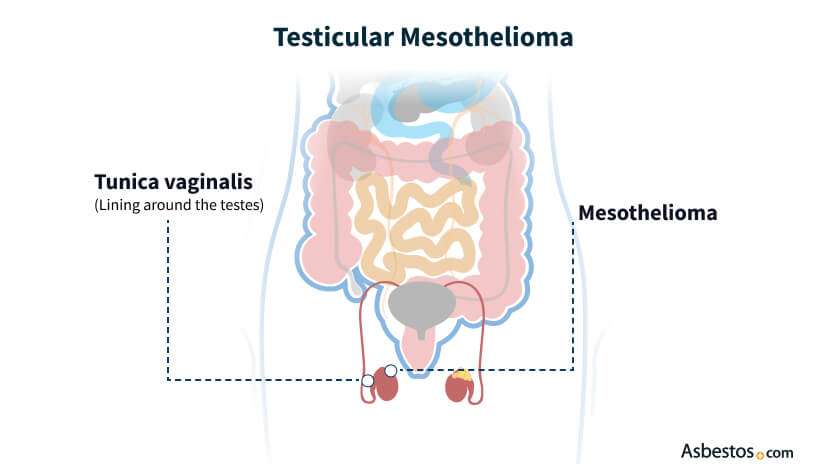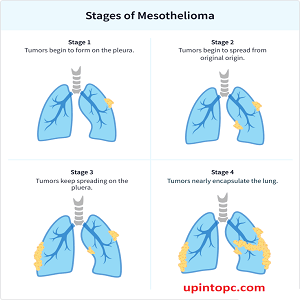Introduction
Testicular mesothelioma is a rare and aggressive form of cancer that originates in the lining of the testicles. While mesothelioma commonly affects the lining of the lungs, abdomen, and heart, testicular mesothelioma accounts for less than 1% of all mesothelioma cases. Due to its rarity, testicular mesothelioma presents unique challenges in terms of diagnosis and treatment. This article aims to provide a comprehensive overview of testicular mesothelioma, including its symptoms, diagnostic procedures, treatment options, and frequently asked questions.
Testicular Mesothelioma: Understanding the Basics
Testicular mesothelioma is a type of cancer that develops in the protective lining, called the mesothelium, of the testicles. The mesothelium is a thin membrane that covers and protects various organs in the body, including the testicles. When cancerous cells develop in the mesothelium of the testicles, it leads to testicular cancer.
Symptoms of Testicular Mesothelioma
Testicular often presents with symptoms that can mimic other conditions. However, being aware of the potential signs is crucial for early detection and prompt treatment. Some common symptoms of testicular mesothelioma include:
- Swelling or lumps in the testicles
- Pain or discomfort in the testicles
- Hydrocele (fluid buildup in the scrotum)
- Testicular mass or tumor
Diagnosis of Testicular Mesothelioma
Diagnosing mesothelioma can be challenging due to its rarity and similarity to other testicular conditions. However, a combination of diagnostic procedures can help identify and confirm the presence of testicular mesothelioma. Some common diagnostic tests for testicular cancer include:
- Imaging tests:
- Ultrasound
- CT scan
- MRI
- Biopsy:
- Fine needle aspiration biopsy
- Surgical biopsy
Treatment Options for Testicular
The treatment approach for mesothelioma depends on several factors, including the stage of the cancer, the overall health of the patient, and individual preferences. The following treatment options may be considered for mesothelioma:
- Surgery:
- Radical inguinal orchiectomy
- Retroperitoneal lymph node dissection
- Radiation therapy:
- External beam radiation therapy
- Brachytherapy
- Chemotherapy:
- Systemic chemotherapy
- Intracavitary chemotherapy
- Immunotherapy:
- Checkpoint inhibitors
- Targeted therapy
Frequently Asked Questions (FAQs) about Testicular Mesothelioma
Q: What causes testicular?
A: Mesothelioma is primarily caused by exposure to asbestos, a mineral commonly used in construction and manufacturing industries.
Q: Is mesothelioma curable?
A: It is a rare and aggressive cancer, and the prognosis can vary depending on the stage and extent of the disease. Early detection and prompt treatment can improve the chances of successful outcomes.
Q: Are there any risk factors for developing testicular?
A: The primary risk factor for mesothelioma is asbestos exposure. Individuals who have worked in industries involving asbestos or have a history of asbestos exposure are at a higher risk.
Q: Can mesothelioma spread to other parts of the body?
A: Yes, testicular can metastasize and spread to nearby lymph nodes, as well as other distant organs and tissues.
Q: What is the survival rate for mesothelioma?
A: Due to the rarity of testicular cancer, there is limited data available on survival rates. However, early detection and aggressive treatment can improve the prognosis.
Q: Can testicular be prevented?
A: Asbestos exposure prevention is key to reducing the risk of developing testicular. Adhering to safety regulations and avoiding contact with asbestos-containing materials can significantly lower the risk.
Conclusion
Mesothelioma is a rare and challenging form of cancer that affects the testicles. Early detection, prompt diagnosis, and appropriate treatment play a crucial role in improving the prognosis for individuals with mesothelioma. This comprehensive guide has provided insights into the symptoms, diagnosis, treatment options, and frequently asked questions regarding mesothelioma. It is essential to consult with medical professionals for personalized guidance and care if you suspect any symptoms related to mesothelioma.




